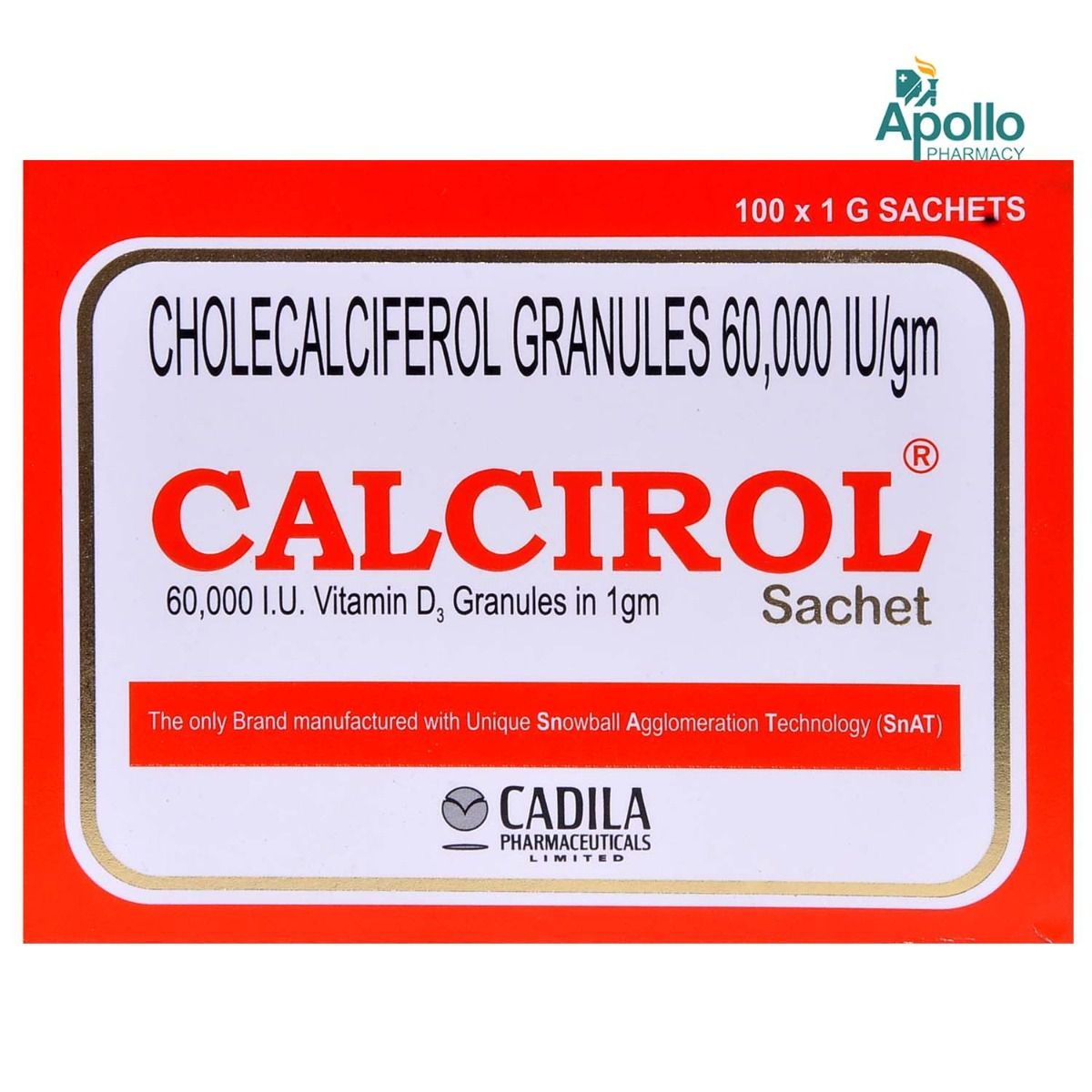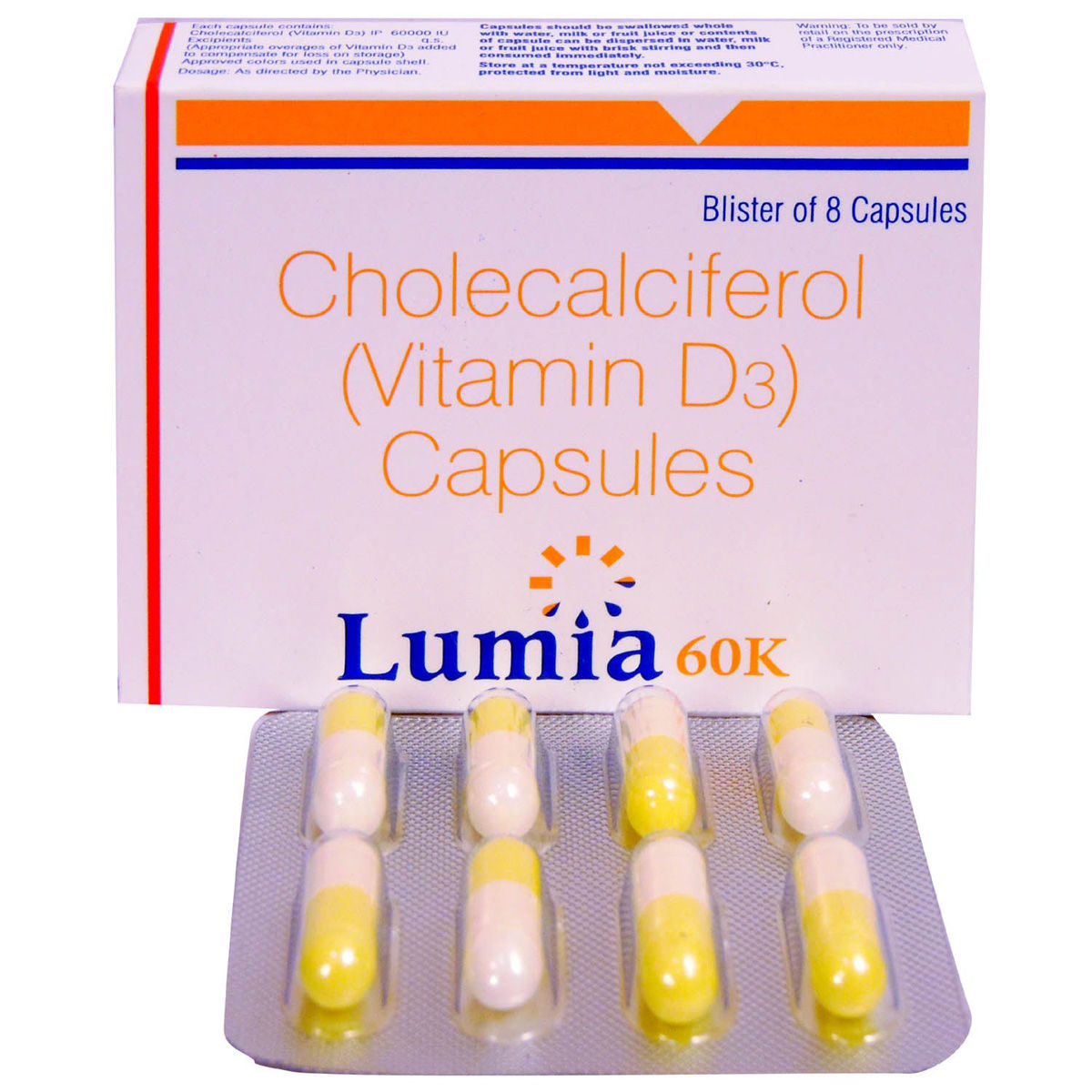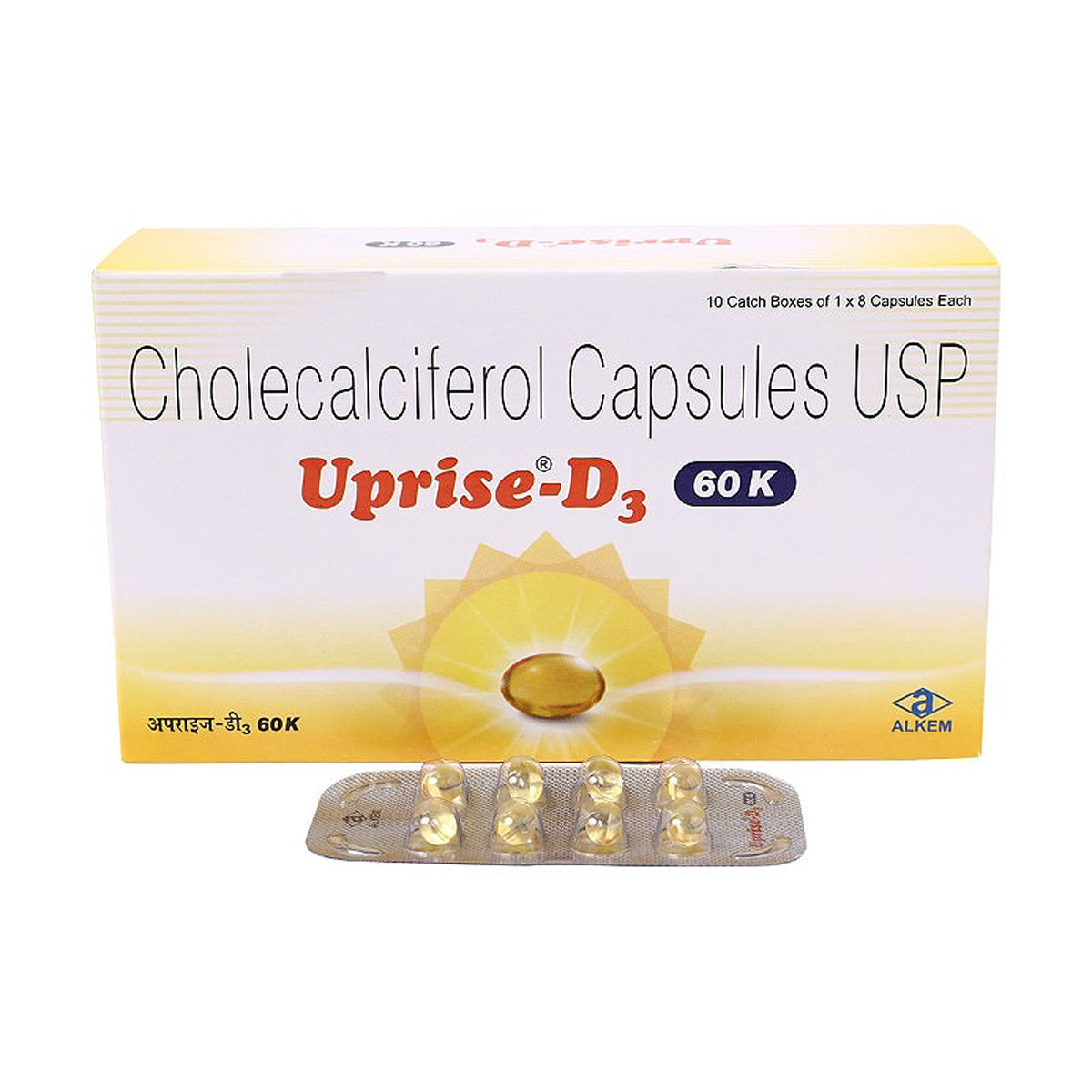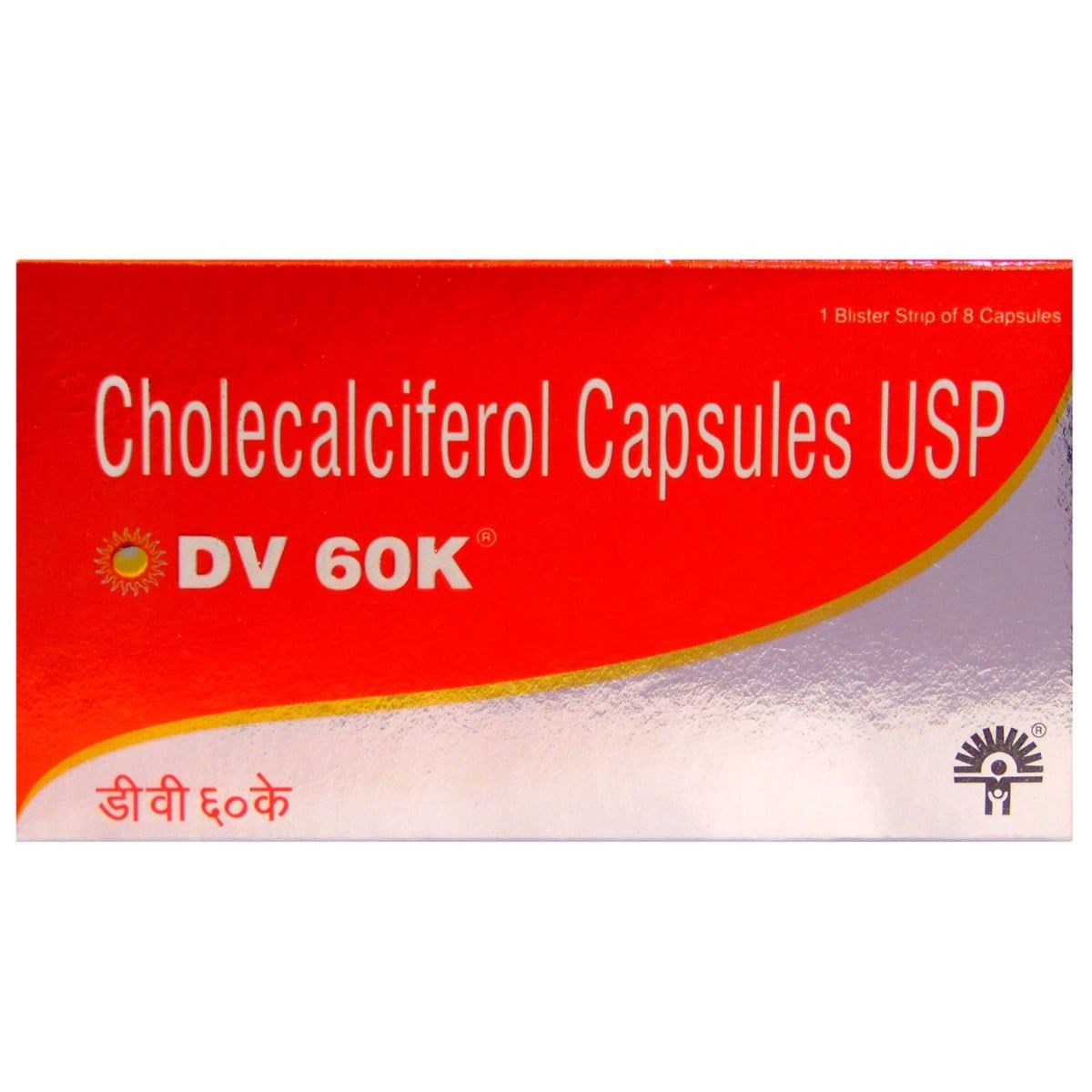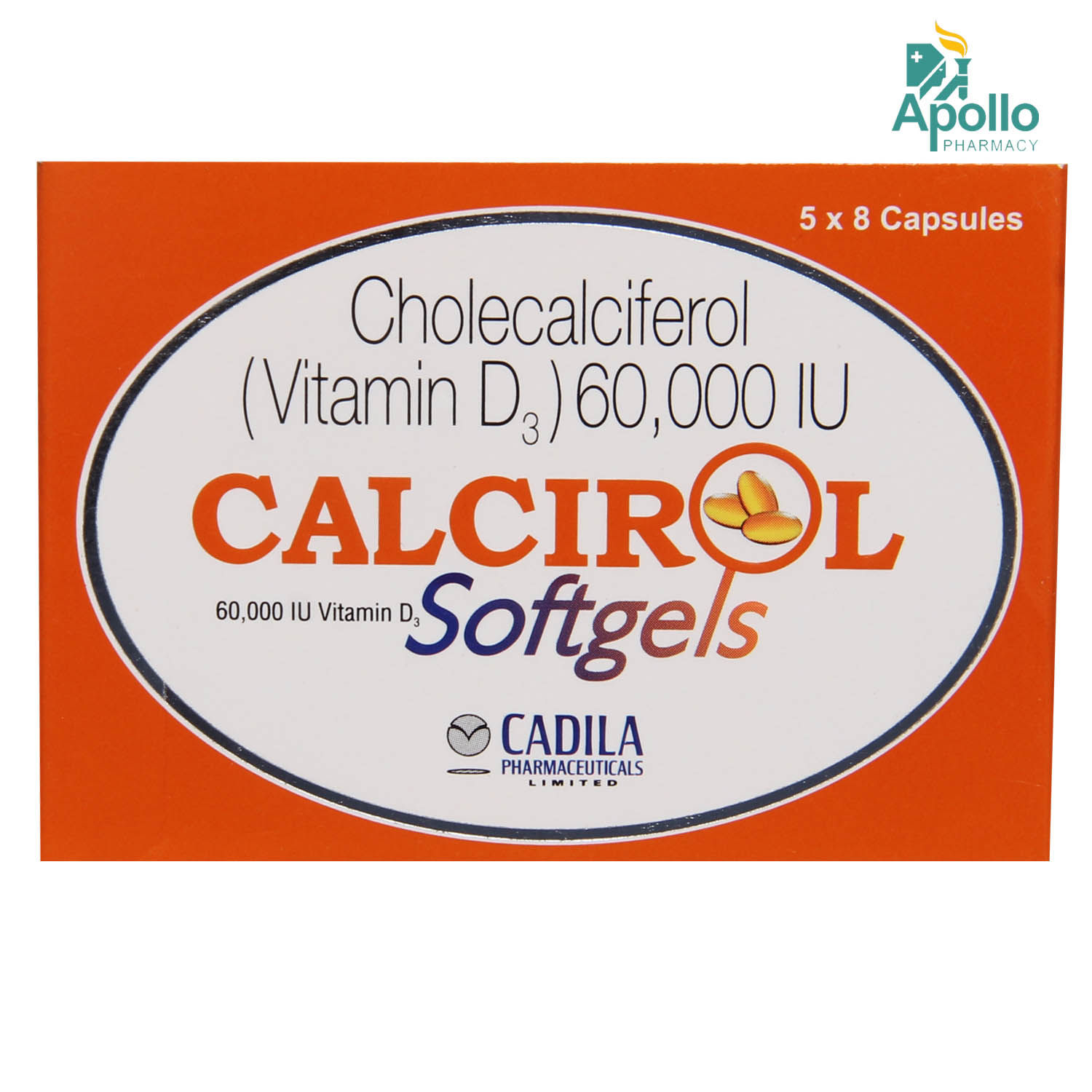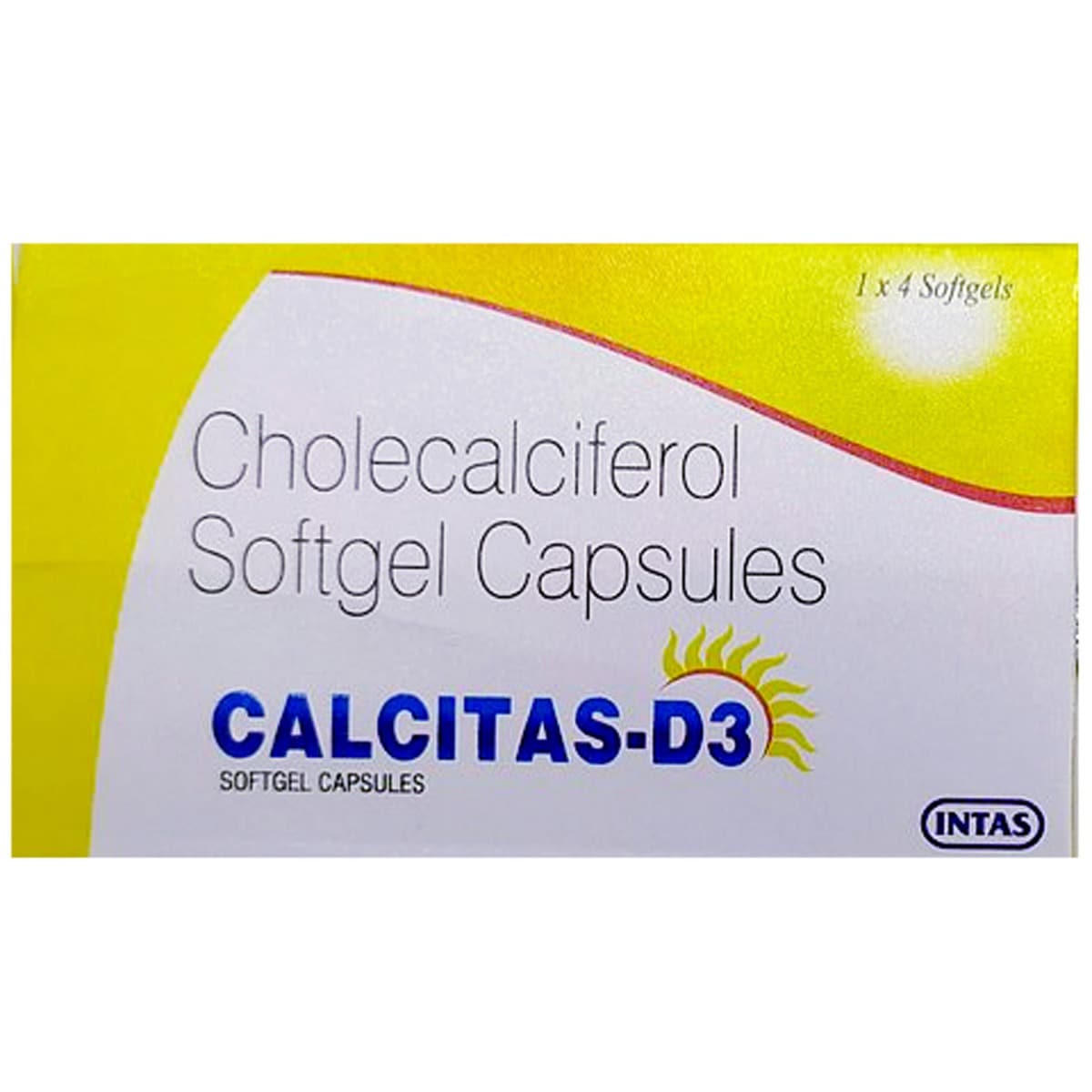Kalox-D3 Sublingual Tablet 4's
Kalox-D3 Sublingual Tablet used to prevent/treat vitamin D deficiency. It contains Cholecalciferol, which increases vitamin D levels in the body. In some cases, this medicine may cause side effects such as vomiting, nausea, constipation, and increased calcium levels in blood and urine. Inform the doctor if you are pregnant or breastfeeding, taking any other medication, or have any pre-existing medical conditions.
₹90.45*
MRP ₹100.5
10% off
₹85.42*
MRP ₹100.5
15% CB
₹15.08 cashback(15%)
Free Delivery
With Circle membership
(Inclusive of all Taxes)
This offer price is valid on orders above ₹800. Apply coupon PHARMA10/PHARMA18 (excluding restricted items)
Know Your Delivery Time
Provide Delivery Location

Available Offers

Secure Payment

India's Most Trusted Pharmacy

Genuine Products
Synonym :
Composition :
Manufacturer/Marketer :
Consume Type :
Return Policy :
Expires on or after :
About Kalox-D3 Sublingual Tablet
Kalox-D3 Sublingual Tablet is used to treat Vitamin D deficiency, osteoporosis (weak and brittle bones) and osteomalacia (softening or deforming of bones due to lack of calcium). Vitamin D deficiency occurs when your body has low Vitamin D levels and is caused by inadequate nutrition, intestinal malabsorption, or lack of sunlight exposure.
Kalox-D3 Sublingual Tablet contains Cholecalciferol, a form of vitamin D. It promotes the absorption of calcium, phosphates, and Vitamin A from different organs and helps maintain overall health.
Take Kalox-D3 Sublingual Tablet as advised. Your physician will decide the dosage based on your medical condition. Kalox-D3 Sublingual Tablet is likely safe to consume. In some cases, it may cause side effects like constipation, increased blood calcium levels, increased calcium levels in urine, vomiting, and nausea. These side effects do not require medical attention and gradually resolve over time. If these side effects persist, please consult your physician immediately.
Tell your physician if you are allergic to Kalox-D3 Sublingual Tablet. Pregnant or breastfeeding women should consult their physician before taking Kalox-D3 Sublingual Tablet. Higher doses of Vitamin D than the recommended daily dose should be used in pregnant women only when advised by the doctor. Kalox-D3 Sublingual Tablet passes into the breast milk. Hence, breastfeeding mothers need to seek medical advice before starting Kalox-D3 Sublingual Tablet. Kalox-D3 Sublingual Tablet is safe to use in children when recommended by the paediatrician. Kalox-D3 Sublingual Tablet should be used with caution in hypercalcemia, renal impairment, heart diseases, kidney stones and hypervitaminosis D (having too much vitamin D).
Uses of Kalox-D3 Sublingual Tablet
Directions for Use
Check the label for directions before use. Mix the granules in water, stir well and drink immediately.
Medicinal Benefits
Kalox-D3 Sublingual Tablet is used to treat low blood calcium levels. It effectively treats various conditions in the body, like Vitamin D deficiency, osteoporosis, and rickets or osteomalacia. Kalox-D3 Sublingual Tablet contains Cholecalciferol (Vitamin D3). Cholecalciferol is a steroid hormone produced in the skin when exposed to ultraviolet light or obtained from food sources. It is a provitamin that is converted into a vitamin after intake. It helps maintain blood calcium and phosphorus levels and mineralization of bone. Kalox-D3 Sublingual Tablet may also used in treating familial hypophosphatemia (a group of rare inherited disorders characterized by impaired kidney conservation of phosphate and, in some cases, altered vitamin D metabolism).
How Kalox-D3 Sublingual Tablet Works
Storage
Side Effects of Kalox-D3 Sublingual Tablet
- Constipation
- Increased blood calcium levels
- Increased calcium levels in urine
- Vomiting
- Nausea
- Chest pain
- feeling short of breath
What if I have taken an overdose of Kalox-D3 Sublingual Tablet
Drug Warnings
Tell your physician if you are allergic to Kalox-D3 Sublingual Tablet. Pregnant or breastfeeding women should consult their physician before taking Kalox-D3 Sublingual Tablet. Higher doses of Vitamin D than the recommended daily dose should be used in pregnant women only when advised by the doctor. Kalox-D3 Sublingual Tablet passes into the breast milk. Hence, breastfeeding mothers need to seek medical advice before starting Kalox-D3 Sublingual Tablet. Kalox-D3 Sublingual Tablet is safe to use in children when advised by the doctor. Kalox-D3 Sublingual Tablet should be used with caution in hypercalcemia, hyperparathyroidism, renal impairment, electrolyte imbalance, heart diseases, kidney stones and hypervitaminosis D (having too much vitamin D).
Drug-Drug Interactions
Drug-Drug Interactions
Login/Sign Up
Taking Cholecalciferol together with Sucralfate may increase the risk or severity of kidney problems.
How to manage the interaction:
There may be a possibility of interaction between Cholecalciferol and Sucralfate, but it can be taken if prescribed by a doctor. Do not discontinue any medications without consulting a doctor.
Cholecalciferol and dihydrotachysterol are forms of vitamin D, and taking too much vitamin D may lead to toxic effects.
How to manage the interaction:
Although there is a possible interaction between Kalox-D3 Sublingual Tablet 4's and dihydrotachysterol, you can take these medicines together if prescribed by your doctor. If you notice any of these symptoms - irregular heartbeat, seizures, weakness, tiredness, headache, dizziness, ringing in the ears, loss of appetite, feeling sick, dry mouth, strange taste in your mouth, muscle or bone pain, thirst, losing weight, eye infection, sensitivity to light, runny nose or itching - contact a doctor right away. Do not discontinue any medications without consulting a doctor.
Co-administration of Cholecalciferol and Calcitriol are forms of vitamin D, and taking too much vitamin D may lead to toxic effects.
How to manage the interaction:
Although there is a possible interaction between Kalox-D3 Sublingual Tablet 4's and calcitriol, you can take these medicines together if prescribed by your doctor. If you notice any of these symptoms - irregular heartbeat, seizures, weakness, tiredness, headache, dizziness, ringing in the ears, loss of appetite, feeling sick, dry mouth, strange taste in your mouth, muscle or bone pain, thirst, losing weight, eye infection, sensitivity to light, runny nose or itching - contact a doctor right away. Do not discontinue any medications without consulting a doctor.
The combined use of cholecalciferol and ergocalciferol are forms of vitamin D, and taking too much vitamin D may lead to toxic effects.
How to manage the interaction:
Although there is a possible interaction between Kalox-D3 Sublingual Tablet 4's and ergocalciferol, you can take these medicines together if prescribed by your doctor. If you notice any of these symptoms - irregular heartbeat, seizures, weakness, tiredness, headache, dizziness, ringing in the ears, loss of appetite, feeling sick, dry mouth, strange taste in your mouth, muscle or bone pain, thirst, losing weight, eye infection, sensitivity to light, runny nose or itching - contact a doctor right away. Do not discontinue any medications without consulting a doctor.
The combined use of aluminum hydroxide with Kalox-D3 Sublingual Tablet 4's may increase the risk of toxicity.
How to manage the interaction:
Co-administration of Kalox-D3 Sublingual Tablet 4's with Aluminium hydroxide can possibly result in an interaction, but it can be taken if your doctor has advised it. If you're having any of these symptoms like bone pain, muscle weakness, anemia, seizures, or dementia, it's important to contact your doctor right away. Do not stop using any medications without a doctor's advice.
The combined use of cholecalciferol and paricalcitol are forms of vitamin D, and taking too much vitamin D may lead to toxic effects.
How to manage the interaction:
Although there is a possible interaction between Kalox-D3 Sublingual Tablet 4's and paricalcitol, you can take these medicines together if prescribed by your doctor. If you notice any of these symptoms - irregular heartbeat, seizures, weakness, tiredness, headache, dizziness, ringing in the ears, loss of appetite, feeling sick, dry mouth, strange taste in your mouth, muscle or bone pain, thirst, losing weight, eye infection, sensitivity to light, runny nose or itching - contact a doctor right away. Do not discontinue any medications without consulting a doctor.
The combined use of calcifediol with cholecalciferol can increase the risk of side effects.
How to manage the interaction:
Although there is a possible interaction between Kalox-D3 Sublingual Tablet 4's and calcifediol, you can take these medicines together if prescribed by your doctor. If you notice any of these symptoms - irregular heartbeat, seizures, weakness, tiredness, headache, dizziness, ringing in the ears, loss of appetite, feeling sick, dry mouth, strange taste in your mouth, muscle or bone pain, thirst, losing weight, eye infection, sensitivity to light, runny nose or itching - contact a doctor right away. Do not discontinue any medications without consulting a doctor.
Cholecalciferol and doxercalciferol are forms of vitamin D, and taking too much vitamin D may lead to toxic effects.
How to manage the interaction:
Although there is a possible interaction between Kalox-D3 Sublingual Tablet 4's and doxercalciferol, you can take these medicines together if prescribed by your doctor. If you notice any of these symptoms - irregular heartbeat, seizures, weakness, tiredness, headache, dizziness, ringing in the ears, loss of appetite, feeling sick, dry mouth, strange taste in your mouth, muscle or bone pain, thirst, losing weight, eye infection, sensitivity to light, runny nose or itching - make sure to call a doctor right away. Do not discontinue any medications without consulting a doctor.
Drug-Food Interactions
Drug-Food Interactions
Login/Sign Up
Diet & Lifestyle Advise
- Include dairy products like milk, yoghurt, cheese or milk-based custard in your diet.
- Eat a serving of broccoli, cabbage, spinach, and other green leafy vegetables daily.
- Include the best dietary sources of vitamin D, such as fish liver oils and vitamin D–fortified milk.
- Snack on calcium-rich nuts like Brazil nuts or almonds.
- Sprinkle sesame seeds over your food, vegetables and salads. Sesame seeds are high in calcium.
- Avoid or reduce the intake of caffeine, soft drinks and alcohol that inhibit calcium absorption.
- Replace the meat with tofu or tempeh for extra calcium in your food.
Habit Forming
Therapeutic Class
Kalox-D3 Sublingual Tablet Substitute

D-Rise 60K Capsule 4's
₹30.95per tabletArachitol Nano Oral Solution 4 x 5 ml
₹94.28per tabletCalcirol Sachet 1 gm
₹34.20per tabletLumia 60K Capsule 8's
₹31.00per tabletUprise-D3 60K Oral Solution 5 ml
₹17.00per tablet
Product Substitutes
Alcohol
Caution
Drinking alcohol can affect calcium absorption; hence, it is advised to limit the alcohol intake while using Kalox-D3 Sublingual Tablet.
Pregnancy
Caution
Use higher doses of Kalox-D3 Sublingual Tablet during pregnancy than the daily dietary allowance only when the doctor advises. Your physician will weigh the potential risks and benefits before recommending Kalox-D3 Sublingual Tablet.
Breast Feeding
Caution
Consult your physician before taking Kalox-D3 Sublingual Tablet if you are breastfeeding. Kalox-D3 Sublingual Tablet can pass into the breast milk. If Kalox-D3 Sublingual Tablet is used during breastfeeding, please monitor the mother and the infant's serum calcium levels.
Driving
Caution
Do not drive or operate machinery if you experience dizziness while using Kalox-D3 Sublingual Tablet. Please consult your doctor if you experience any dizziness.
Liver
Caution
Before taking Kalox-D3 Sublingual Tablet, let your physician know if you have any history of liver disease. Hepatic impairment/liver disease can alter certain Vitamin D forms' metabolic and therapeutic activity.
Kidney
Caution
It is advised to seek physician advice before starting Kalox-D3 Sublingual Tablet if you have kidney diseases like kidney stones or undergoing dialysis. Caution should be taken in dialysis patients to maintain adequate phosphorus levels and avoid ectopic calcification (calcium deposition).
Children
Caution
The physician will suggest the dosage of Kalox-D3 Sublingual Tablet based on the child's age and weight.
FAQs
Country of origin
Manufacturer/Marketer address








